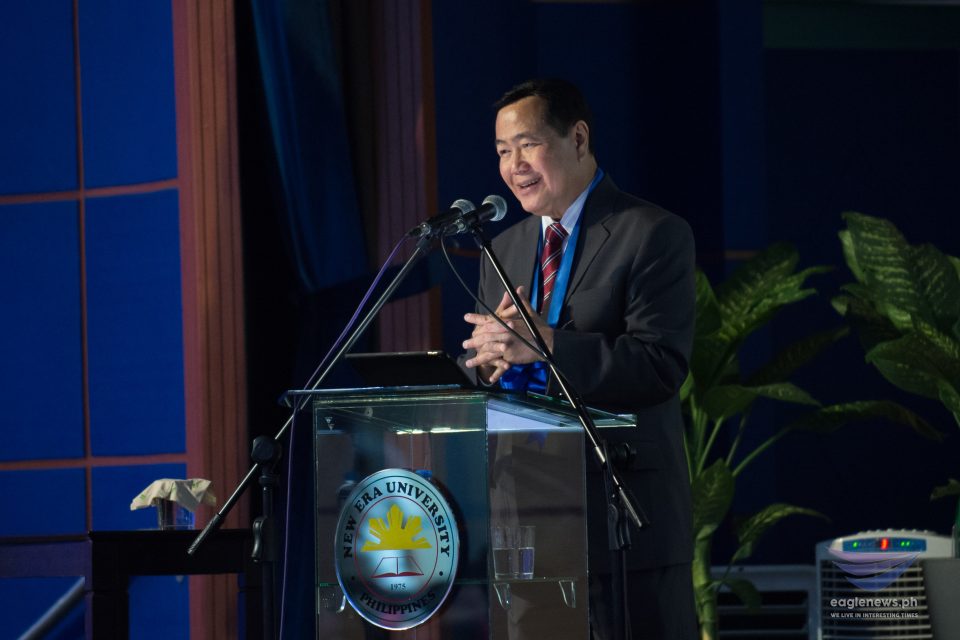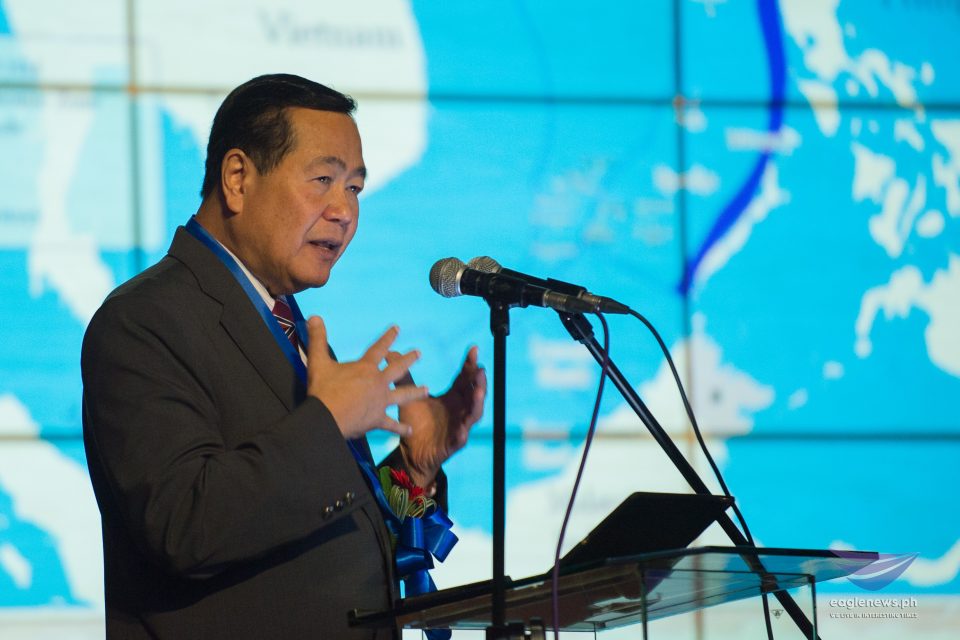
(Eagle News) – There should be a government agency or authority that is solely dedicated to planning and thinking of ways on how to protect and preserve the country’s marine resources, including those in the disputed waters of the South China Sea.
This was what Acting Chief Justice Antonio Carpio proposed as he answered questions after his special lecture on the West Philippine Sea in New Era University in Quezon City on Friday, March 9, where he detailed how China had expanded its presence to Philippine territorial waters.
Carpio said there should be an “institutional approach” so the Philippines can properly plan and protect its natural resources in the seas for the present and future generations.
“We have to do this in an institutional approach. We have done this ad hoc so far. We don’t have an agency in the Philippines that is dedicated to thinking how our natural resources in the seas will be protected, how they can be exploited, how to conserve, preserve them. There’s none,” the Supreme Court acting chief justice explained.
Carpio said not one government body is accountable for the protection of the country’s sea territories, including those in the China Sea, that the Philippines was always caught by surprise when a foreign entity like China encroaches upon our waters, or even seizes our territories.
“Because we don’t have a dedicated agency that is just thinking, future planning. If China seized this, how do we respond? So we need a body that will be thinking only how to preserve, how to conserve, how to utilize our resources in our seas,” he said.
Carpio said that this should include our archipelagic waters, territorial seas, exclusive economic zone (EEZ), among others.
He observed that the country’s resources above the ground are almost denuded, and those below the ground, such as mineral resources, are almost exhausted.
“The only resources we have now – to us and to future generation of Filipinos – are the resources in the sea. But there is China, trying to get 80 percent (of the South China Sea),” Carpio noted.

“So we have to really think about this – a dedicated government agency, authority, to plan all of this — how do we conserve, preserve, utilize for the benefit of present generation and future generations. But we are not doing that. That’s what we can do,” he said.
The Supreme Court magistrate also pointed out that diplomats, Philippines ambassadors, usually bring with them all the materials related to the country’s maritime disputes, including materials on the law of the sea, when they leave government service and retire for example.
“There’s no central repository of all the documents,” he noted.
“We don’t have that. So we need to think of this in an institutional way (so) there will be an institutional memory of what we do here,” he said.
In answer to this, New Era University College of Law dean Atty. Serafin Cuevas Jr., said that NEU will be more than willing to help in this regard.
“It is a revelation to us that there is not one governmental agency which is a repository of those records, as well as documents,” he said.
Cuevas said the NEU would like to initiate the establishment of a center for maritime studies to help the government in this effort.
(Eagle News Service)







